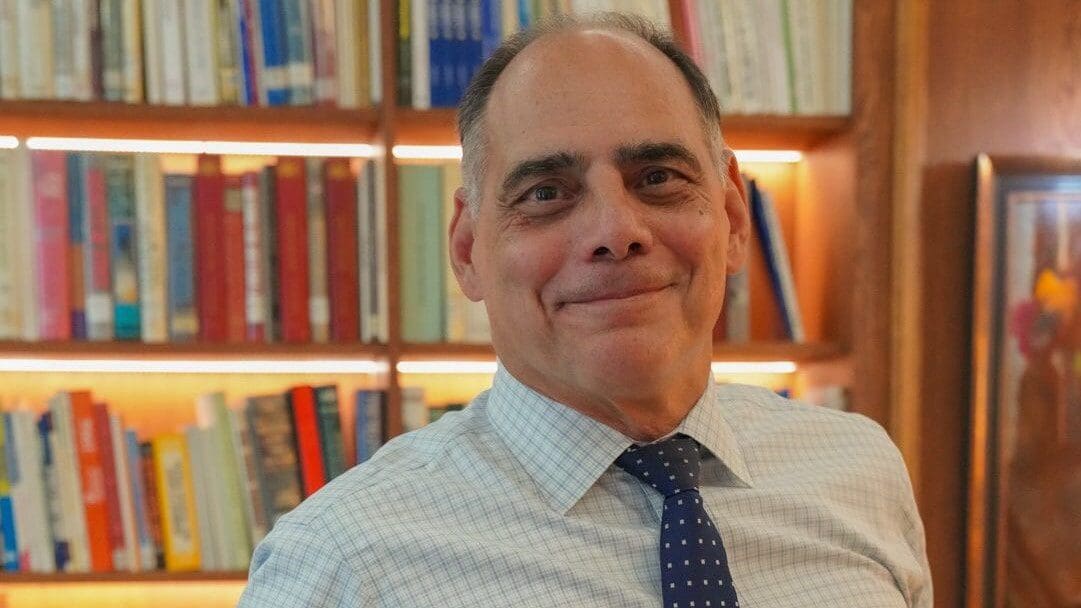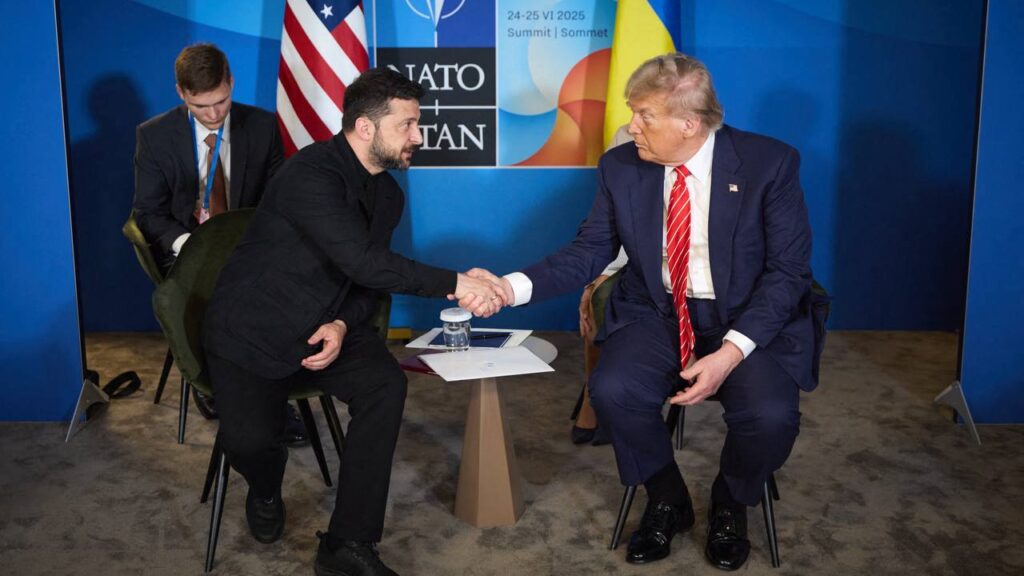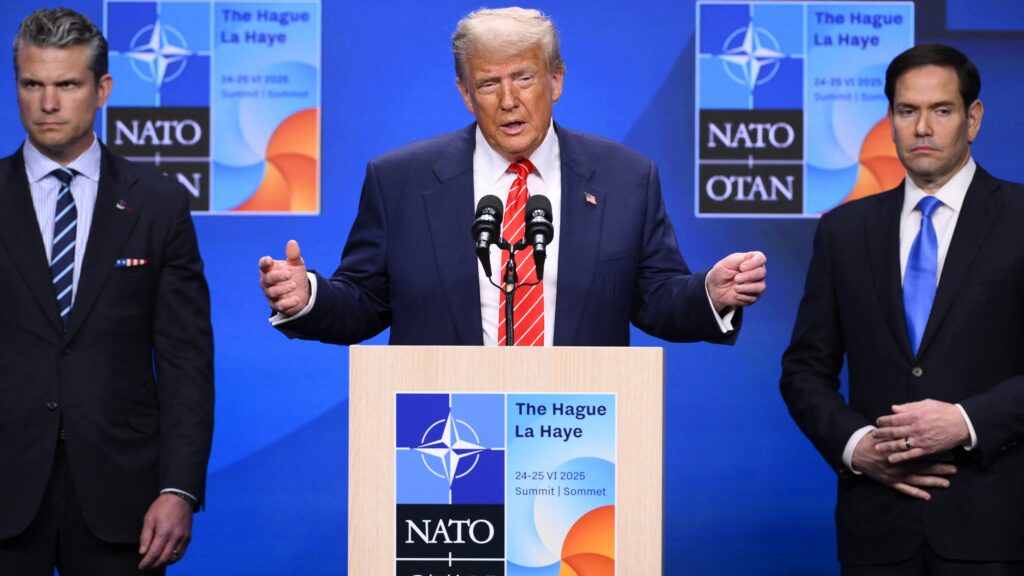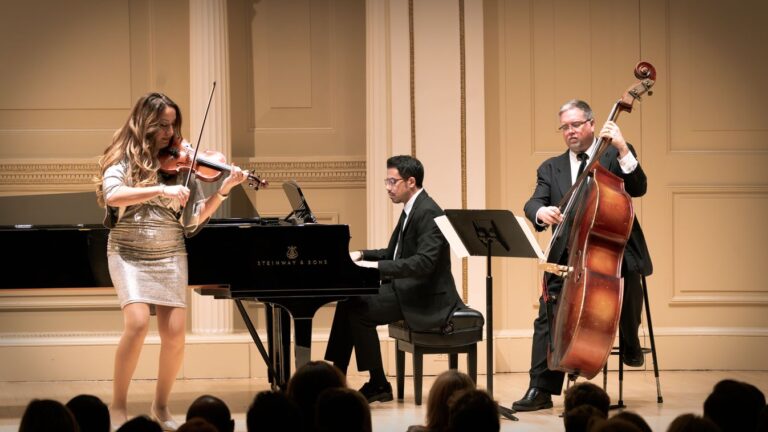James Carafano is a leading expert in national security and foreign policy challenges, an
accomplished historian and teacher, as well as a prolific writer and researcher. He currently
serves as Senior Counselor to the President and E.W. Richardson Fellow at The Heritage Foundation. He is a graduate of the US Military Academy at West Point and served 25 years in the US
Army, retiring as a Lt. Colonel. He served in Europe, Korea and the United States. His
assignments included head speechwriter for the Army Chief of Staff, the service’s highest ranking officer. He also holds a master’s degree and a doctorate from Georgetown University. He granted an interview to Hungarian Conservative while in Budapest as a speaker at The Third Danube Geopolitical Summit in September.
***
In your 50-year association with the Heritage Foundation, you’ve witnessed a dramatic transformation in the world due to rapid technological advancements. Artificial intelligence is now a part of our daily lives, and any information is readily accessible on the Internet within minutes. I was wondering if conservatism has been affected by these changes, or if it has remained the same as it was half a century ago.
I bring a unique perspective to this because prior to joining Heritage, I spent 25 years in the US Army. During my military service, discussing political affiliations like Republicans or Democrats was uncommon. Our focus was on the mission, and the presidency, be it Jimmy Carter, Ronald Reagan, or Bill Clinton, didn’t play a significant role in our daily discussions. During my time as a speechwriter for the Army Chief of Staff, I tried to broaden my understanding; I visited various think-tanks in Washington, trying to grasp the differences between conservative, liberal, and libertarian ideologies. When I joined Heritage, it was during a transitional phase in the conservative movement, which originated from the era of Ronald Reagan. It’s worth noting that distinguishing between Republicans and Democrats was often challenging in the 1950s.
Really?
I remember my parents—who were Democrats—came in one day and said: ‘We’re Republicans now.’ When I asked why, they humorously mentioned that many of their friends were Republicans, and the Republican club had a better bar. So it wasn’t a strong ideological divide between Republicans and Democrats. Both parties had conservatives and liberals in them who would often go to the same cocktail parties.
What were the critical elements contributing to this division of the Democrats and Republicans?
There were some famous icons of the conservative movement like Barry Goldwater and Bill Buckley and that was probably the resurgence of a conservative philosophical voice in the United States, much related to both political freedoms in the war against communism, but also economic freedom.
But what really formed the modern conservative movement was the election of Ronald Reagan.
How did Ronald Reagan impact the conservative movement?
Ronald Reagan managed to bring together the fusion of three groups that had conservative ideas: evangelical conservatives, which were a rising force in American politics in both terms of demographics and in terms of their political action; traditional national security conservatives; and classical economic conservatives who believed in free markets and limited government. And what Ronald Reagan managed to do was to get all three of these people who often didn’t agree with each other on many issues to all vote for the same person. And this actually coincided with the birth of Heritage.
What are the principles and values that underpinned the founding of the Heritage Foundation?
To be the big tent for the conservative movement. And rather than precisely define this, what it means to be conservative, creating a place for all the people that say they’re conservatives and kind of pull together. And I will tell you, consciously there were issues that we didn’t address at Heritage because we didn’t talk about the issues that divided conservatives.
What were those issues?
For example, we didn’t talk about gender, we didn’t talk about immigration, and we didn’t talk about abortion. These were issues that were off the table because everybody didn’t agree on that.
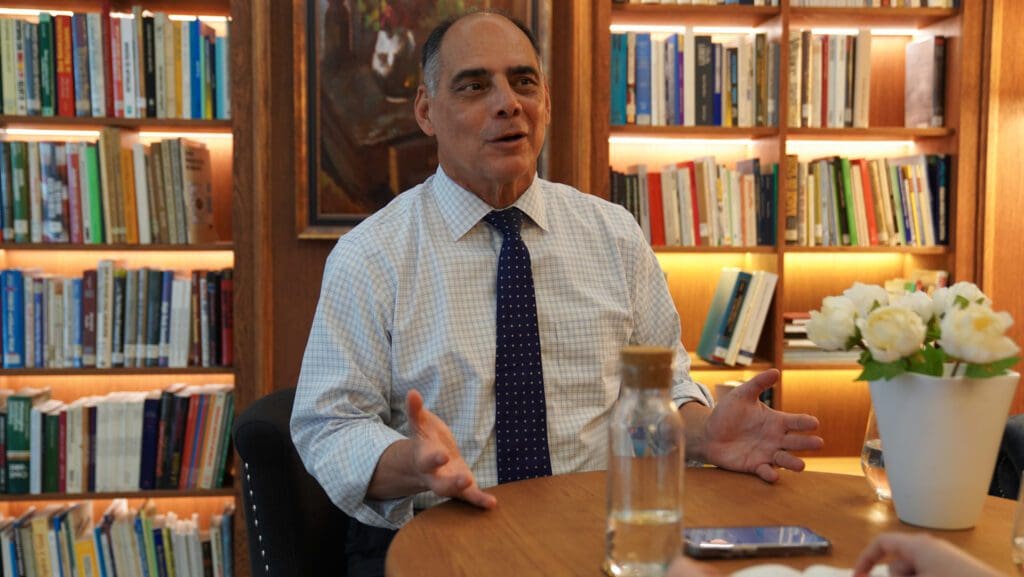
So, what changed?
Well, Obama changed, right? Obama, the confluence of really the failures of traditional Republicans under George W. Bush, not just in Iraq and Afghanistan, but in a range of domestic issues, education, and everything else. And the meteoric rise and the power of Obama really put conservatives back on the defensive.
And what we see now in my view is what modern conservatism is: that
all these different segments can’t survive by just voting for the same person.
Beyond having a unified candidate, what essential element does modern conservatism require for success?
They have to agree that there are equities that are important to each group and have to be respected. For example, there can’t be a national candidate for office as a conservative who isn’t pro-life and we can debate exactly when they would want to cut off abortion or have any, but they’re going to be validly pro-life. Or for strong immigration enforcement and border security or for countering all the woke social ideas. The other thing I think of is, and you see this if you look at the debate among modern conservatives, there’s always a debate about what is an authentic conservative. And we have lots of conservatives with adjectives, like free conservative or national conservative, and that’s actually not where conservatives are.
Where are they?
Conservatives see that they have to fight to win their country back. And they’re less interested in these kinds of ecumenical fights over what’s a perfect conservative, and they’re much more interested in the issues that affect them at their dining room table, in their chequebook, in their everyday lives. So, if you look at the front burner issues, it’s like, well, you can have any definition of conservative that you want. But if you’re not pro-life, if you don’t want to combat crime in our cities, don’t want controlled immigration and strong border security, if you don’t want to do away with inflation that’s destroying the American middle class…I mean, this is often called the blue-collar party, and I think it’s actually true.
American conservatives want people to deliver on the bread-and-butter issues.
What are the matters that are not as fundamental and money-related, and therefore, should not be delivered on to win the votes of conservatives?
They don’t want others to define what family is for them. Parents want to control the education of their children. People are very comfortable with two genders. These are the things that if you ask somebody in a coffee shop in the United States, not in Starbucks because there’s probably not a lot of conservatives…But if you ask an American conservative in a Luncheonette or something and say, what is a conservative? He’s not going to start philosophically defining it for you. She or he is going to say,
these are the things I want to be fixed, and that’s the modern conservative movement.
They want things to be fixed, and they want their leaders to be fighters in getting them fixed.
And what are your thoughts on how elder politicians can make conservative policymaking more appealing to the future generation? Do you agree with those thinking that conservativism is in a kind of crisis?
Conservatives struggle with youth outreach, and youth tend to adopt political views influenced by their environment rather than party efforts. The youth vote has gained significance over the past 30 years. However, the change we’re likely to see isn’t young people shifting toward conservatism but rather liberal youth becoming disillusioned and possibly not voting. In terms of electoral impact, whether they switch their vote or abstain, it’s equally beneficial.
The upcoming EU and US elections hold considerable importance. What can Hungary anticipate from the future US president, depending on the election outcome?
On the one hand, regarding the US elections, our nation is finely balanced, a true 50-50 divide, making it premature to predict a winner. I anticipate minimal dramatic shifts in American foreign policy. On the other hand, there is animosity by the current administration against Hungary. There wouldn’t be that from a Republican president, it’s just a fact. And when you don’t know the outcome, you have to have two plans. One relies on the hope for a Republican victory, aligning with their distinctive policies. Conversely, the alternate plan necessitates Hungary harnessing the strength of numbers within the European Union.
What do you mean by that?
Central Southern and Northern Europe are becoming increasingly important and an increasingly powerful political voice. And
if Hungary has other countries standing up for Hungary, that’s the best way to push back against Washington and Brussels.
The tendency of a democratic administration is to be very, very pro-EU integration and lazy at the same time. Washington wants to reach out to Brussels through Paris and Berlin saying ‘Okay, this is what you’re going to do, and then you tell everybody else to make them do it, right?’. And then we’re done.
What about the Republicans? How would you describe the Republican attitude to European conservatives?
The Republicans are exactly the opposite. They want to go to the countries themselves and hear from them. Conversely, Republicans prioritize direct engagement with individual countries, valuing their unique perspectives. And so this is why regional political cooperation is important for Hungary. If a number of countries are going back to the US and saying this is what we want to do, then it’s much more likely that the US is going to listen to them. A Republican president will see that as an affirmation of what their partners really want. A Democratic president essentially would be forced to respect that.
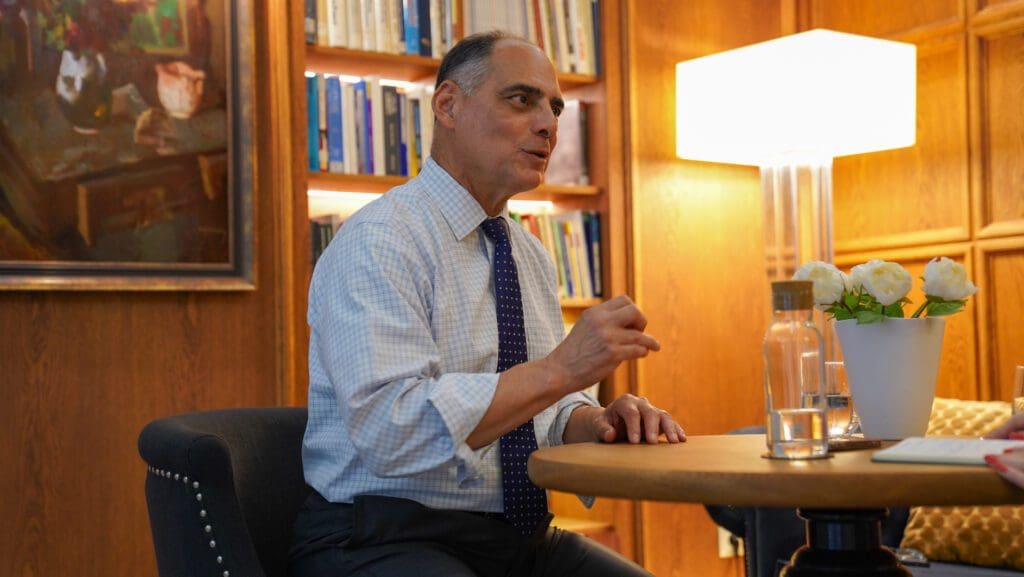
And what about the European elections?
A Democratic administration supports EU integration, aligning with Brussels’ stance towards member states. If Brussels deems a country uncooperative on EU integration, the US, under Democratic leadership, would take a tough stance. On the flip side, a Republican President follows a contrasting approach. While they won’t advocate against the EU, they listen to EU opinions when in line with their allies’ consensus. Republicans prioritize discussions with their friends. If their allies hold influence in Brussels, it facilitates US-EU cooperation. Hence, EU elections hold importance for the United States. A Republican president would find a stronger conservative presence in the EU Parliament beneficial. A strong ECR result, especially with an alliance of EPP and ECR, would bolster European conservative leaders and improve the US relationship.
Thank you. What do you think could the Hungarians learn from the US conservatism?
Firstly, Hungary needs to broaden its engagement within the broader American conservative movement. While the strategy to counter the political isolation resulting from recent demonization efforts was effective, it primarily targeted American social conservatives, making it somewhat limited. This is because American social concerns tend to prioritize domestic issues over foreign policy. Secondly, I align with the Hungarian government in rejecting the idea of being confined within a ‘hard sphere of influence,’ considering it a potential trigger for conflicts and chaos. However, I differ in perspective when it comes to Hungary serving as a gateway for both China and the United States. I find this notion unrealistic.
What would be a more pragmatic approach to focus on?
There is a condition in the world today that we really haven’t had since before World War I, which is we really were locked into hard spheres of influence. Even after the Cold War ended, there was this tremendous effort by Russia to really control the post-Soviet space. And then you had China trying to carve its space out. And look, the reality is today: the Russian post-Soviet space is falling away from Russia.
The China brand is much diminished, nobody really wants to be a suburb of Beijing.
This whole space is really up for grabs. And I wouldn’t say this should result in a series of hard spheres if influence, here I perfectly agree with Hungarians. But there’s an opportunity to link these spaces together to really recreate the connectivity that Eurasia traditionally had. If you link all these projects together, that’s I think transformative.
What could be Hungary’s role in such a transformative geopolitical project?
Hungary is uniquely positioned to lead in this endeavour, situated at the crossroads. If we cast our gaze toward the Caucasus and the central corridor, we find Turkic states with which Hungary shares strong relations. Additionally, Hungary maintains a robust relationship with Italy, fostering substantial collaboration.
Hungary has the potential to drive this vision of expanding free and open spaces.
Let’s actively advocate for the development of north-south infrastructure, foster cooperation, and encourage economic collaboration. A crucial aspect involves establishing a free and open gateway to the Black Sea and linking it to the Caucasus and Central Asia, integrating them into the community. Extending this connectivity through the Middle East to India, South Korea, and Japan is equally paramount. Collaboration with nations like Italy, Greece, and Turkey to stabilize the North further accentuates this transformative vision. This isn’t about rigid spheres or military divisions; it’s about fostering unity and progress. Hungary holds the potential to be a trailblazer in this initiative, and if I were Hungary, this is precisely where I would focus my vision.

